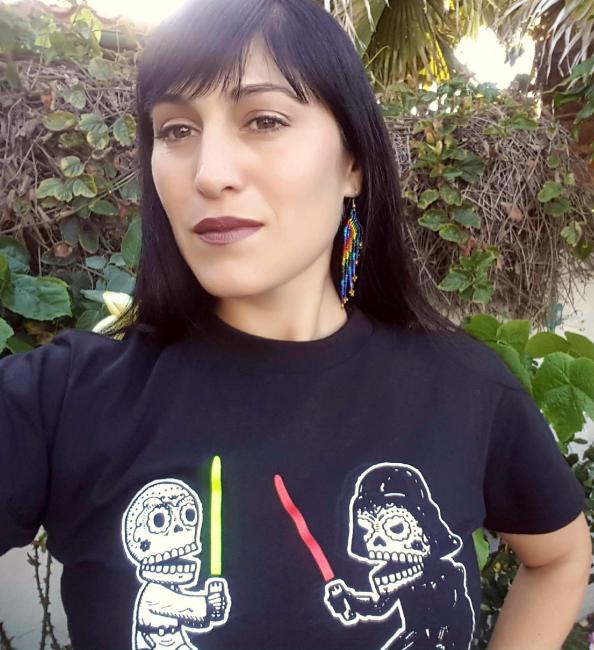Amrah Salomón
Amrah
Amrah Salomón
Advisor Board, UCSB Assistant Professor
Amrah Salomón J. is an Assistant Professor of English and director of the Regeneración Lab at the University of California Santa Barbara. She is an activist, educator, and writer of mixed ancestry (O'odham, Mexican, and European). Her research and teaching interests focus on transnational and hemispheric Indigenous Studies, the U.S.-Mexico border, Mexican and Latin American Social Movements, Women of Color & Indigenous Feminisms, Queer Theory, Critical Geography, Land and Environment, Law and Policy, Archival Methods, Memory, Non-Western and Indigenous Political Thought, Anticolonialism, Film and Media, Popular Culture, and Activism. She enjoys critical pedagogy, participatory teaching practices, and mentoring students in all genres of creative writing, film, performance, and literature in English, Spanish, and Indigenous languages.
Dr. Salomón is a former University of California President’s Postdoctoral Fellow, Ford Foundation Dissertation Fellow, Davis-Putter Fund Fellow, and completed a Ph.D. in Ethnic Studies at the University of California San Diego. She founded the UCSD Community and Labor Project, co-founded the Native American youth performance project Rez Beats, is a member of the Center for Interdisciplinary Environmental Justice (http://www.the-ciej.org) and the O’odham Anti-Border Collective. Dr. Salomón J. is currently working on various community-based digital humanities projects, including Reclaiming Homelands: Mapping Indigenous Place Names of North San Diego County, funded by the University of California Critical Mission Studies Initiative. She also works with the O'odham and Yoeme community of Yuma, Arizona, O'odham communities in Sonora, Mexico, and with Indigenous and Spanish descendants of the California mission system.
Dr. Salomón J. is a multi-lingual poet, playwright, and essayist whose creative work has been published in the U.S., Mexico, and U.K. Her most recent creative work can be seen in the radical anti-border violence land acknowledgment of the exhibit Hostile Terrain 94 at the Museum of Us in San Diego, California. Dr. Salomón J.’s academic work has been published in Science for the People Magazine, The Critical Ethnic Studies Association Journal Blog, Chicana/Latina Studies Journal, The Political Theology Network Journal symposium, and a critically acclaimed chapter on the use of social justice narratives in Research Justice: Methodologies for Social Change (Policy Press 2015). Her newest publication is "Carbon Copies: Colonial recognition, climate crisis, and Indigenous belonging," in the upcoming Routledge collection Making Citizenship Work, edited by Rodolfo Rosales (July 2022).
Dr. Salomón's book project, Burning Fences, Mending Labyrinths: An Indigenous Border Critique, proposes Indigenous border studies methodologies that challenges the limits of thinking borders through legal jurisdictions and separate sovereignties, pushing instead for analysis grounded in anti-colonial critique and Indigenous ways of knowing and relating drawn from O’odham experience situated in bordered places like Yuma, Arizona. The chapters analyze the material and figurative overlapping of competing colonial regimes, a sonic and cultural study of race, land, and fugitivity, and then shifts to dive deep into the possibilities for borderless, anti-colonial autonomies rooted in spiritual relations. She employs methodologies that range from archival analysis, critical geography, ecomemory, literary poetics and discourse analysis, oral history, and Indigenous feminist theory to flesh speculative histories, theorize Indigenous descendant relationships to fire, water, land, and consider abolitionist decolonial futurities.
